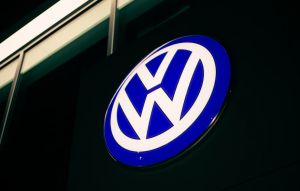SAIC and Volkswagen Extend Joint Venture to 2040
On the 40th anniversary of SAIC Volkswagen, SAIC Motor and the Volkswagen Group signed an agreement in Shanghai to extend their joint venture (JV) until 2040. This marks a significant milestone in their long-term partnership, highlighting their commitment to the Chinese market, the Volkswagen Group confirmed on Thursday.
Strengthening Collaboration Amid Challenges
The extended agreement reflects the growing trend of China-European joint ventures, despite challenges such as the European Union’s (EU) protectionist tariffs on Chinese electric vehicles (EVs). Experts believe this partnership showcases the potential for win-win collaboration between China and Europe in the evolving auto industry.
Ralf Brandstätter, a Volkswagen AG Board Member for China, emphasized the strategic importance of the partnership. “We are now raising our collaboration with SAIC to the next level, focusing on product innovation, production efficiency, and decarbonization. By 2030, SAIC Volkswagen will launch 18 new models, with 15 exclusively developed for the Chinese market,” Brandstätter said.
Brandstätter also reaffirmed China’s role as a cornerstone of Volkswagen’s global strategy. He noted the company’s commitment to increasing investments in the region, in partnership with Chinese collaborators.
Broader China-European Automotive Collaborations
Despite the EU’s tariff measures on Chinese EVs, partnerships between Chinese and European automakers are flourishing. For example:
- Chery Automobile and Spain’s Ebro-EV Motors launched their JV in Barcelona, celebrating the production of the s700 SUV. Signed in April, their agreement aims to create 1,250 jobs and produce 150,000 vehicles annually by 2029, according to Xinhua News Agency.
- Leapmotor International, a JV between Chinese automaker Leapmotor and global auto giant Stellantis, began European sales operations in September. The JV plans to expand into markets in the Middle East, Africa, Asia-Pacific, and South America later this year.
These collaborations highlight the complementary strengths of Chinese and European enterprises as they navigate an evolving market and expand product offerings to meet consumer demands.
Market Challenges and Opportunities
Zhou Mi, a senior research fellow at the Chinese Academy of International Trade and Economic Cooperation, noted that such collaborations align with mutual interests and are driven by market dynamics. However, the EU’s decision to impose extra tariffs on China-made EVs could harm global supply chain cooperation.
Jian Junbo, Deputy Director of the Center for China-Europe Relations at Fudan University, warned that these tariffs might:
- Strain trade relationships between China and the EU.
- Hinder the global EV industry’s technological innovation.
- Slow down EV adoption in the EU, potentially weakening European automakers’ competitive edge.
While the EU announced the tariffs on October 29, it also indicated plans to continue price commitment consultations with China, Xinhua reported.
The extension of SAIC Volkswagen’s JV to 2040 reflects the enduring partnership between Chinese and European automakers, despite political and economic challenges. As collaborations like Chery-Ebro and Leapmotor-Stellantis demonstrate, shared strengths and complementary goals continue to drive the global auto industry forward, ensuring innovation and progress in a competitive market.





